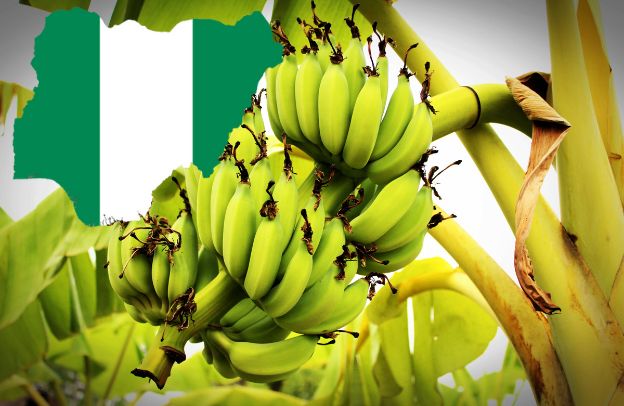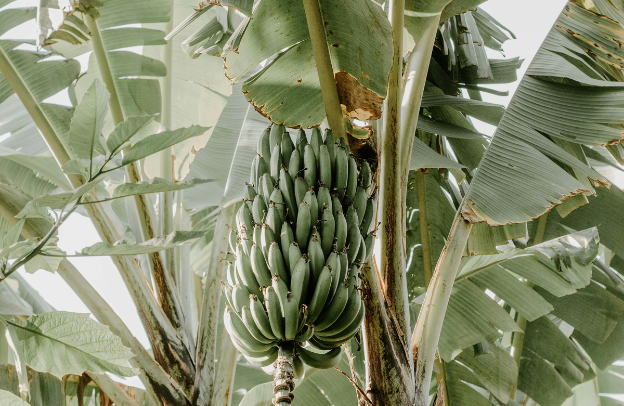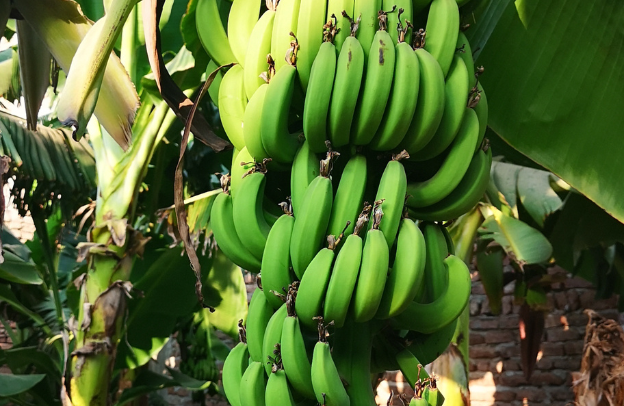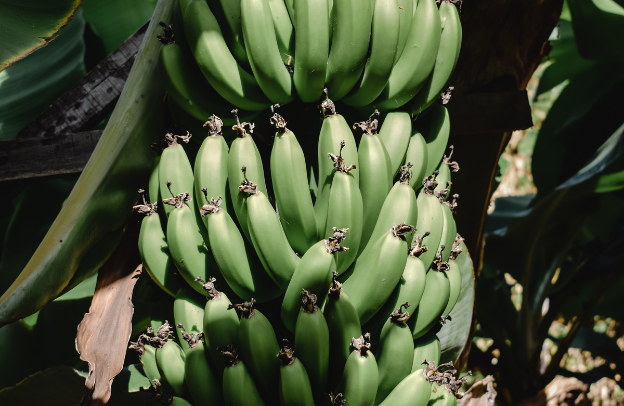How To Start Plantain Farm In Nigeria (In a Few Steps)

When listing the top food staples found in every Nigerian home that are cheap and very nutritious, Plantain crops should be considered. Being a staple that can be transformed or eaten in various styles makes it lovable all around the globe, yet, it’s mainly produced in rainforest regions considering its need for water.
Learn How to Leverage Your Story through our Story To Asset Framework.
Nigeria sets as one of the major producers in West Africa but doesn’t export to other countries, meaning that if Nigerians should export half of the 2.4 million metric tons of plantains they produce annually, their GDP will skyrocket.
Plantain farming in Nigeria is hands down a profitable business venture all farmers love to indulge in. Even beginners in the venture will amass wealth if they follow the trails of other experts in the business. Plantain contains nutrients such as Iron, magnesium, potassium, vitamins, etc. and that’s one of the reasons it’s highly sought after by Nigerians.
In the article How To Start A Lucrative Plantain Farming Business In Nigeria and Africa: The Complete Guide, it is noted that the Nigerian government has introduced several policies and initiatives to support plantain farming. One notable example is the Central Bank of Nigeria’s (CBN) Anchor Borrowers Program, which offers loans to farmers to help finance their agricultural activities, including plantain cultivation.
See also Plantain Vs Banana – What Are The Differences And What You Need To Know
To cultivate plantain crops in Nigeria, you’ve to take into account the two seasons in which the crops grow well. The plantain season is mainly the planting season which starts around May when there’s enough rainfall and the harvest season.
If you’re still wondering if investing in a plantain business is profitable, here are a few reasons that will convince you more.
Why Plantain Farming Is Profitable
1. It’s Highly Sought After
As already mentioned, Plantain is loved by all in Nigeria and beyond because of its nutritional value. One pertinent thing that makes Plantain unique is that even if the prices increase the demand for it will still maintain its pace or increase as well. So, if you’re to join the business, you’ll make a profit on a regular basis because of its high demand.
2. There’s Always A Market To Sell Your Crops
Given that Nigeria is among the top plantain producers in Africa, maximum profits will be derived from the business when they not only limit themselves to being subsistent farmers but also exporters. Although Nigeria doesn’t participate in exporting plantains with only local selling most farmers accrue profits, then imagine the extent of the profit you’ll maximize when you join in exporting or importing the crop.
Having known why plantain business is Profitable, now we’ll look into ways to start a plantain farm in Nigeria.
1. Go On Market Survey
Before diving into sprinkling money to join the plantain business it’s crucial you embark on a market Survey. Find out what people actually want. Is it plantain chips that consumers always demand? Is it plantain flour or the plantain itself?
Knowing these things will enable us to determine what area to invest in and accumulate profit. Also, you’ve to determine your base in terms of exporting your plantain crops internationally or stabilizing yourself locally.
When you’ve specified the actual level, you want your plantain business to go, then you start ladling out your business plans with or without the help of an expert.
With your business plan, of course, your goals and profit revenue will be attained.
2. Acquire A Farmland
Getting farmland where you cultivate your plantain before harvest and sales is the next line of action to take when aiming to venture into the business. However, in Nigeria, you can’t just acquire farmland in any just area because the crop needs water to grow.
Hence you should get farmlands in areas such as Edo state, Akwa-Ibom, Ogun, Osun, Oyo, etc. These areas have natural rain forests which plantains need to survive.
However, if you decide to cultivate your plantain elsewhere then you should install a proper irrigation system that will water the crop as and when due.
See also How To Apply Fertilizer To Your Plantains
In addition, endeavor to get a large portion of land so you can cultivate plentiful plantain crops in which you’ll reap large profits during sales.
3. Learn Modern Farming Techniques
The way you cultivate your plantain for sale should differ from the way subsistent farmers do. Learn modern ways you can plant your crops so as to get increased yields.
In cases where you can’t handle your farmland or lacks the knowledge on how to plant and care for your crops then employing an expert is ideal. Hence with the help of the expert, your crops will grow well but ensure that whomever you employ is indeed knowledgeable in these areas.
4. Prepare Your Farmland
After going through the process of market survey, training on modern farm method and acquiring a farmland, preparing the farmland comes next in line.
You have to clear your bushes and get rid of weeds, stumps, and every other thing that can hamper the growth of your plantain crop. By doing these you make the soil tillable and allow easy penetration of water and air into the soil.
Afterward, you add fertilizers to the soil to facilitate the growth of your plants when planted.
5. Add Mulch To Your Plantain Tree
Adding organic mulch to your plantain tree trunk helps to protect the soil from drying out quickly and protects the plantain tree shallow roots from being infected.
You can add up to up to 4-6 inches of your organic mulch to the plantain tree for growth.
6. Draft A water Schedule Or Install An Irrigation System.
Knowing that plantains need water for survival and growth, most Nigerian farmers plant theirs during the rainy season which yields crops up to 30%.
In cases when you water your plants on a constant basis or rather install a drip irrigation system that showers the plants with water as and when due your plantains have the likelihood of yielding crops close to 50 or 100% than what you’d get when planting during the rainy season.
7. Buy Clean Plantain Suckers.
Often times farmers make the mistake of buying infected suckers that not only affect their crop yield but also the soil, making it unfit to plant other crops.
These infected suckers are usually gotten from uprooted plantain crops but no matter the hype given to it, sometimes it ends up causing unexpected damages.
See also Top Plantain Derivatives You Should Know
Therefore, to avoid cases like this, buy new suckers bred in greenhouses or laboratories. It’s better to be safe than to regret.
8. Plant Your Suckers
Planting your suckers rightly is very vital and you should also consider the time factor. For the time factor, most Nigerian farmers affirm that planting your suckers during the September period helps to mature your plantains in periods where its demand is higher and the supply lower.
At that period of time, you can determine the price of your crops rather than it being determined by the market price.
However, when planting your suckers, fill up the holes you dug with fertilizer that helps the plantain tree to grow more than excepted.
9. Harvest Your Plantain
After about 8-11 months of planting and efficiently managing your farmlands, then prepare for harvest. Harvesting plantains isn’t tedious. It’s just the normal process of plucking fruits except this time you’ll need to use a machete to cut down the bunches.
It’s worth of note that you pluck plantain bunches when it’s unripe before marketing.
In Conclusion on How To Start Plantain Farm In Nigeria (In a Few Steps)
Steps on how to start a plantain farm in Nigeria are very simple when you follow the highlighted procedures above. More so, investing in the plantain business yields maximum profits as it’s always in demand in the market.
Learn How to Leverage Your Story through our Story To Asset Framework.




